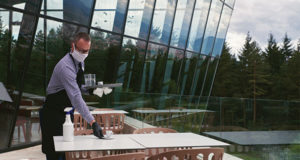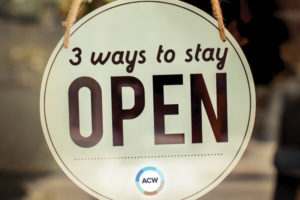3 KEY SUCCESS FACTORS FOR AUSTRALIAN HOTELS IN 2018
Wednesday, February 14, 2018 HospitalityHow do you define the ultimate hotel experience?
This is a question hotels and resorts must revisit every year in order to stay relevant in an ever-changing industry like hospitality.
Staying on top of the volume of trends affecting this sector can seem overwhelming, but a recent report from IBISWorld has identified three key success factors all Australian hotels and resorts should be aware of in 2018. Let’s take a closer look.
AN OVERVIEW OF THE AUSTRALIAN HOTEL INDUSTRY
Australian hotels and resorts have enjoyed boosted revenue in recent years, due in large part from growth in international arrivals as well as a healthy tourism industry.
While this growth has been great for hotels and resorts, it’s also sparked competition from disruptive home rental platforms like Airbnb. Last year, Deloitte reported that Airbnb was a ‘significant driver’ of the tourist economy, contributing $1.6 billion to Australia’s GDP.
How are @Uber and @Airbnb affecting the taxi and hotel industries? http://t.co/wyJO0cs82s pic.twitter.com/5wTak1Wj8V
— IBISWorld (@IBISWorld) April 14, 2015
Why do guests enjoy such accommodation? While one factor is the price point, there’s also added variety in terms of options, as well as the adventure of trying something that’s an alternative to more traditional hotels and resorts.
That said, while Airbnb and other services represent a competitive alternative to more traditional accommodation, there’s still very much a place for four- and five-star hotels and resorts in Australia. To continue to outperform peer-to-peer rentals, hotels and resorts need to determine how to provide the ‘ultimate hotel experience’ in 2018.
3 KEY SUCCESS FACTORS FOR HOTELS AND RESORTS
To help hotels and resorts improve their services, IBISWorld has identified three factors that will be critical to success in coming years:
- Having a loyal customer base,
- Proximity to key markets,
- Access to multi-skilled and flexible workforce.
Here’s how to foster all three:
1. Having a loyal customer base
This is a major competitive edge for traditional hotels – returning guests. Business people and other frequent travellers don’t want to research new accommodation every trip. Further, these customers can’t risk an unreliable stay – which is common on Airbnb where pictures and reviews don’t always tell the whole story. They need something that feels like a second home, where they can be completely comfortable during their time away.
To this end, make your hotel or resort that desirable place. Ensure rooms are always consistent by hiring a professional housekeeping company who can do far more than a private cleaner or homeowner. Everything from the linens on the bed to the fresh towels in the bathroom will keep your customers coming back.
 Frequent travellers want a hotel that feels like a second home.
Frequent travellers want a hotel that feels like a second home.2. Proximity to key markets
If your hotel or resort is near attractions, be sure to make these well known to your guests. Typically, hotels and resorts will have better pedestrian access to urban centres than private homes, so advertise this accordingly.
While you can’t up and move your business, you can also stay competitive by offering transportation services if you’re a bit further out of town.
3. Access to a multi-skilled and flexible workforce
The ideal hotel workforce is a team of hospitality professionals who can easily jump between roles.
The ideal hotel workforce is a team of hospitality professionals who can easily jump between roles.
This can’t happen, however, when employees are bogged down with tasks outside of their knowledge base, such as cleaning and laundry.
To ensure your staff can upskill themselves in customer service and more relevant managerial areas, outsource your housekeeping to ACW Hospitality. Our team has the knowledge and resources to run your housekeeping program efficiently and effectively.




